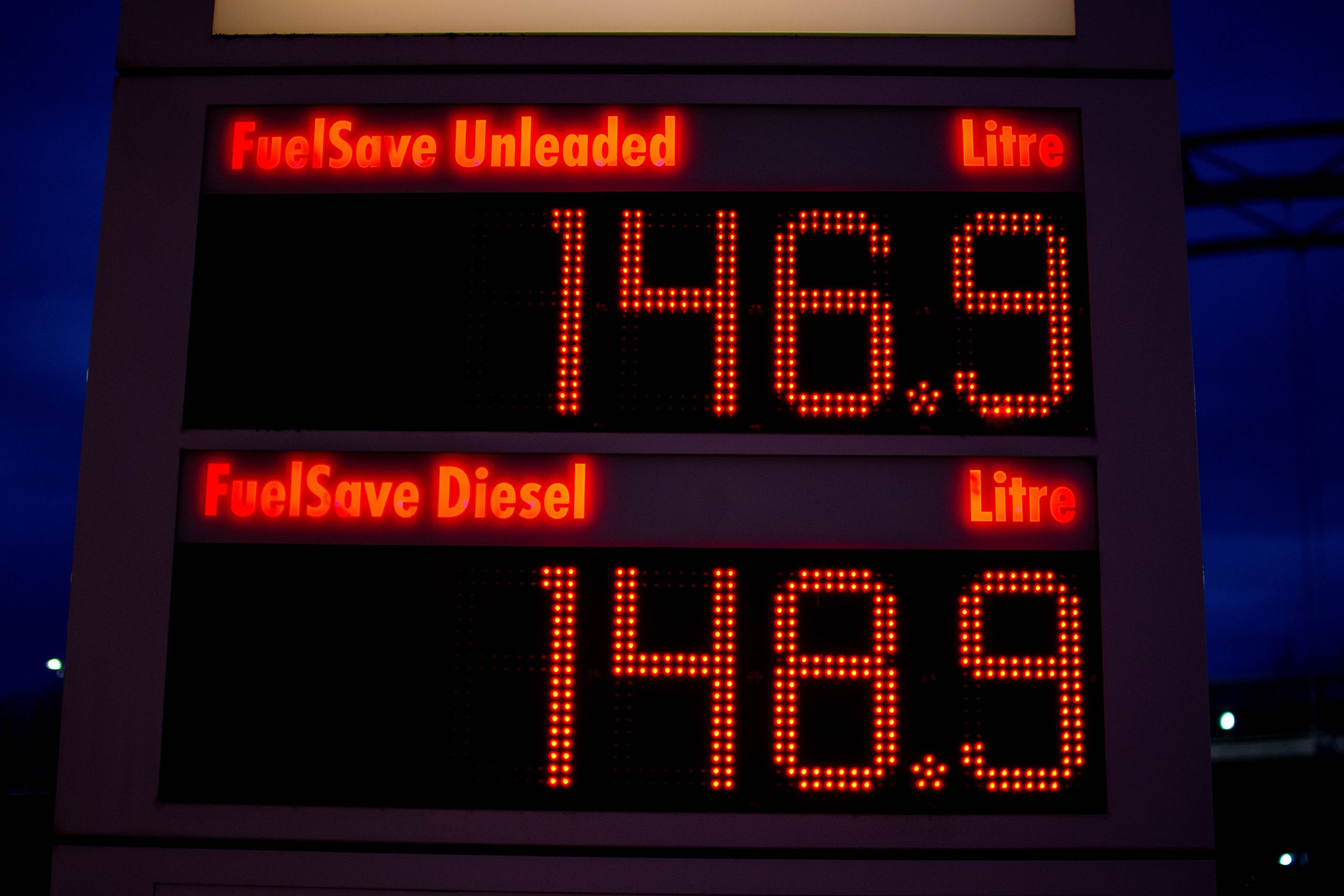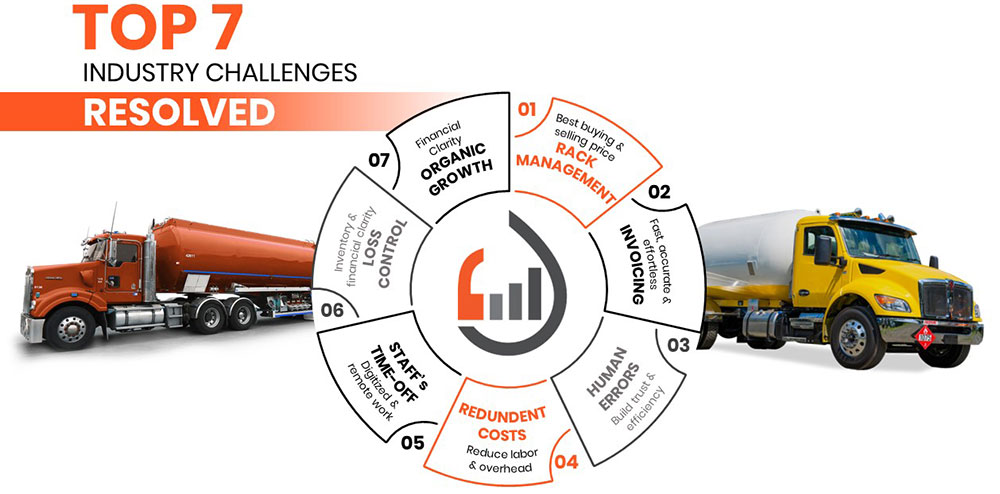Introduction
In the competitive landscape of fuel delivery management, the efficiency of invoicing processes can be a critical factor determining the success of a business. Fuel delivery companies must adopt systems that not only streamline operations but also enhance accuracy, minimize errors, and optimize cash flow. This article delves into the importance of fast and instant invoicing for fuel delivery management, exploring various strategies and technologies that facilitate effective invoicing and overall operational efficiency.
As the fuel delivery industry continues to evolve, leveraging advanced technologies and automated systems becomes increasingly crucial. Businesses must focus on creating seamless workflows that allow for prompt invoicing, effective tracking of deliveries, and real-time financial management. This comprehensive guide will discuss achieving error-free invoicing, detecting and preventing fuel loss, and the role of automation in promoting organic growth within fuel delivery organizations.
Achieving Error-Free Invoicing
Common Invoicing Errors in Fuel Delivery
Invoicing errors can lead to significant financial discrepancies and strained customer relationships. Common mistakes in fuel delivery invoicing typically include incorrect quantities, miscalculated pricing, and failure to account for delivery fees. Additionally, manual data entry is prone to human error, which can compromise the integrity of financial records. These errors not only result in delayed payments but also undermine the company’s credibility in the eyes of customers.
For fuel delivery businesses, the stakes are particularly high as even minor discrepancies can lead to loss of revenue and customer trust. It is essential to identify these common pitfalls and implement robust invoicing strategies to mitigate risks. By understanding the nature of these errors, companies can take proactive measures to ensure accuracy in their invoicing processes.
How Automation Reduces Human Error
Automation plays a pivotal role in minimizing human error in the invoicing process. By utilizing modern invoicing software, companies can automate various aspects of billing, including data entry, calculations, and invoice generation. This not only reduces the potential for mistakes but also increases the speed at which invoices are processed. Automated systems can pull data directly from delivery logs and customer records, ensuring that all information is accurate and up-to-date.
Moreover, automated invoicing systems often come with built-in checks and balances that flag inconsistencies or unusual patterns, alerting businesses to potential issues before invoices are sent out. This proactive approach allows fuel delivery companies to maintain high standards of accuracy and enhances overall operational efficiency.
Implementing Error-Free Invoicing Solutions
To achieve error-free invoicing, fuel delivery companies should consider implementing comprehensive invoicing solutions tailored to their specific needs. This may involve investing in specialized software that integrates with existing delivery management systems, enabling seamless data transfer and reducing the chance of errors. Additionally, training staff on best practices for invoicing can significantly decrease the likelihood of human error and improve overall workflow.
Regular audits of the invoicing process can also identify patterns of errors and areas for improvement. By continually assessing the effectiveness of invoicing practices and integrating feedback, businesses can refine their processes and enhance the accuracy of their billing operations.
Detecting and Preventing Fuel Loss
Understanding Fuel Loss in Delivery Operations
Fuel loss is an ongoing challenge in the fuel delivery industry, with implications for profitability and operational efficiency. Fuel loss can occur due to various reasons, including leaks, theft, measurement inaccuracies, and record-keeping errors. It is essential for fuel delivery companies to understand the factors contributing to fuel loss in order to develop effective prevention strategies.
Moreover, the impact of fuel loss extends beyond financial losses; it can also affect regulatory compliance and environmental standards. Therefore, preventing fuel loss is not only about protecting the bottom line but also about maintaining the integrity and reputation of the company.
Tools and Techniques for Fuel Loss Prevention
To combat fuel loss, companies can utilize various tools and techniques. Advanced monitoring systems, such as GPS tracking and fuel management software, allow for real-time tracking of fuel levels and delivery routes. These systems provide valuable insights into fuel usage and can help identify discrepancies between fuel delivered and fuel billed.
Additionally, implementing proper training programs for employees can ensure that all personnel are aware of potential risks and how to mitigate them. Regular maintenance of delivery vehicles and equipment is also crucial, as it can prevent leaks and ensure accurate fuel measurements. By adopting a multi-faceted approach to fuel loss prevention, businesses can significantly reduce the risk of financial loss.
Integrating Detection Systems into Your Workflow
Integrating detection systems into existing workflows is vital for effectively managing fuel delivery operations. Automated fuel management systems can be incorporated into the overall business framework to provide comprehensive insights into fuel transactions. These systems can automatically capture data during delivery, ensuring that all transactions are accurately recorded and discrepancies are promptly addressed.
Moreover, utilizing mobile applications for drivers can enhance communication and reporting capabilities. By allowing drivers to report issues in real-time, businesses can respond swiftly to potential loss events and take corrective actions. Embracing technology in this manner not only supports fuel loss detection but also fosters a culture of accountability within the workforce.
The Role of Automation in Organic Growth
Leveraging Existing Resources for Business Expansion
Automation presents substantial opportunities for fuel delivery companies to leverage existing resources for organic growth. By streamlining operations and enhancing efficiency, businesses can allocate resources more strategically, focusing on areas that drive revenue generation. Automated systems free up employee time, enabling staff to concentrate on customer service and business development rather than routine administrative tasks.
Furthermore, automation allows for scalability. As fuel delivery companies grow, their operational demands increase. Automated invoicing, fuel management, and customer relationship management systems can easily adapt to these evolving needs. By investing in automation, companies position themselves for sustainable growth while maintaining operational integrity.
Benefits of Automation in Propane Delivery Management
In the context of propane delivery management, automation provides numerous benefits that enhance operational efficiency and customer satisfaction. Automated scheduling systems, for example, can optimize route planning for delivery trucks, reducing operational costs and minimizing delivery times. This not only improves profitability but also enhances customer service by ensuring timely deliveries.
Moreover, automated invoicing systems specifically designed for propane delivery can handle complex pricing structures and discounts, ensuring accurate billing without manual intervention. This reduces the likelihood of disputes over charges and fosters stronger customer relationships. Overall, embracing automation in propane delivery management equips businesses with the tools necessary for sustained success in a competitive market.
Case Studies: Successful Implementation of Automation
Numerous fuel delivery companies have successfully implemented automation strategies, resulting in significant operational improvements. For instance, a regional propane distributor adopted an automated scheduling and dispatching solution that enabled the company to reduce delivery times by 25%. This efficiency gain not only improved customer satisfaction but also allowed the business to expand its service area without increasing operational costs.
Another example can be seen in a fuel delivery firm that integrated a comprehensive invoicing system, reducing billing errors by over 50%. This dramatic decrease in inaccuracies led to faster payment cycles and improved cash flow, thereby enhancing the company’s financial stability. These case studies illustrate the tangible benefits of automation in fuel delivery management and serve as a model for other businesses aiming for growth and efficiency.
Conclusion
Summary of Key Points
In summary, fast and instant invoicing is crucial in fuel delivery management. Companies can achieve error-free invoicing through the use of automation, which significantly reduces human error and improves accuracy. Additionally, understanding and preventing fuel loss is vital for operational efficiency and profitability. By integrating advanced monitoring systems and investing in employee training, businesses can minimize risks associated with fuel loss.
Finally, embracing automation presents significant opportunities for organic growth by enabling fuel delivery companies to leverage existing resources effectively. The successful implementation of automation strategies can lead to improved operational efficiency, enhanced customer satisfaction, and a stronger competitive position in the market.
FAQs
What are the main benefits of automated invoicing in fuel delivery?
Automated invoicing reduces errors, speeds up the billing process, improves cash flow, and enhances customer relationships through accurate and timely billing.
How can I prevent fuel loss in my delivery operations?
Implementing advanced monitoring systems, conducting regular maintenance, and training staff on best practices are effective strategies for preventing fuel loss.
What role does automation play in business expansion?
Automation allows for streamlined operations, freeing up resources for business development and enabling scalability as operational demands grow.
Can automation really improve customer satisfaction?
Yes, by ensuring timely deliveries and accurate billing, automation enhances overall customer experience and satisfaction.
What should I consider when choosing invoicing software for my fuel delivery business?
Consider integration capabilities, user-friendliness, customizability for your pricing structures, and customer support when selecting invoicing software.






